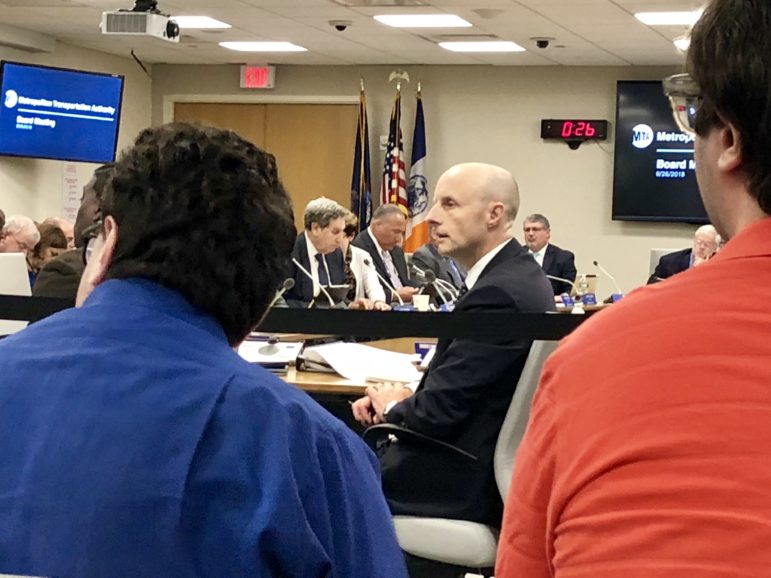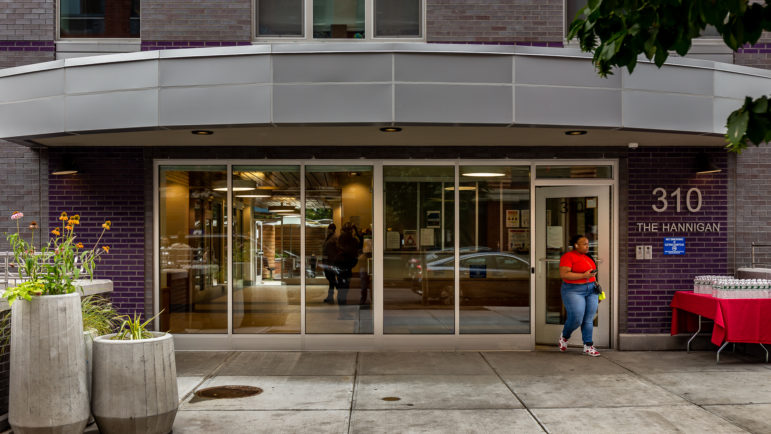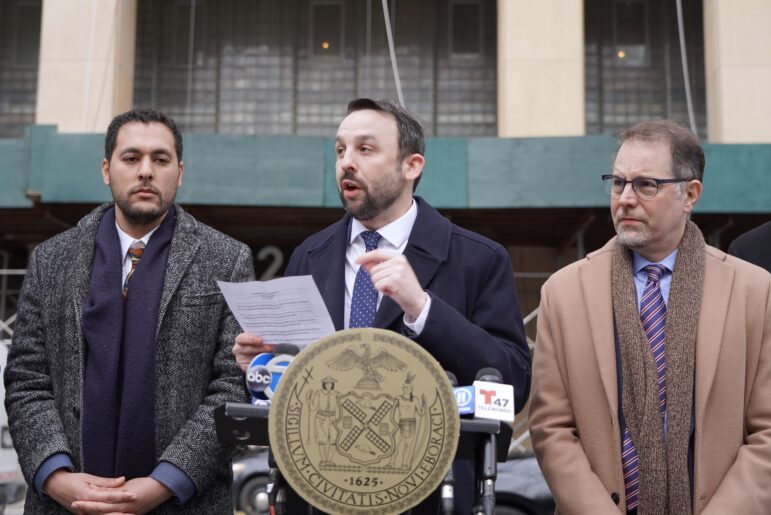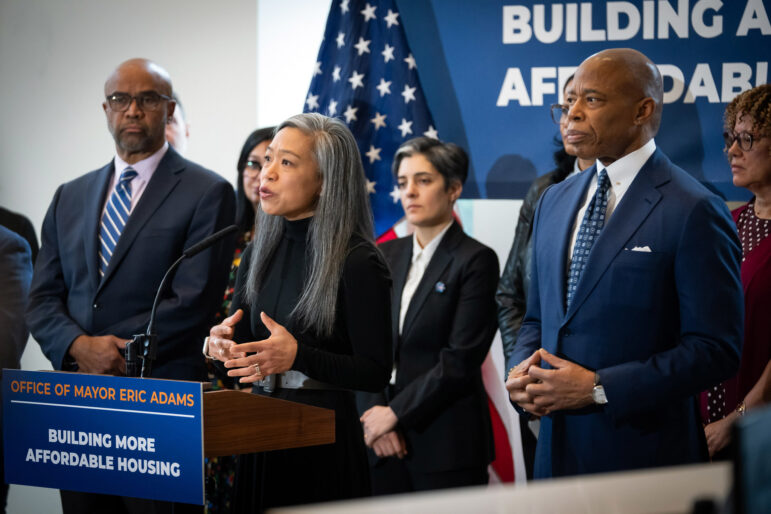
Jeanmarie Evelly / City Limits
New York City Transit President Andy Byford at the MTA’s monthly board meeting Wednesday.
Your subway commute might still feel slow and unpredictable, but service on the system is actually “stabilizing,” New York City Transit President Andy Byford told reporters at the MTA’s monthly board meeting Wednesday.
Byford — who took the helm of the agency last fall, a few months after the MTA launched its emergency “Subway Action Plan” to rescue the deteriorating transit system — said that while it’ll take time for riders to notice a marked difference, subway performance is slowly improving.
“I think there is perception and reality. I absolutely get that right now people don’t feel that the subway has materially improved,” Byford said. “I also look at data, and the data doesn’t lie.”
According to Byford, several performance markers — including the number of major incidents, number of train breakdowns, incident response times and elevator availability — have all improved, pointing to an overall “stabilizing of the system” compared to the chaotic state it was in last year.
“It takes time for that to permeate through,” Byford said. “Customers say to me that they are noticing it’s certainly not getting any worse. What we really want is for them to say is it’s absolutely getting better.”
He credited the leveling off to quick fixes rolled out under the Subway Action Plan, but stressed the need for elected officials to secure a steady source of funding to really overhaul the transit system.
Byford’s looking to drum up financial support for his sweeping “Fast Forward” plan, which aims to completely modernize the subways over the next decade — an effort that’s estimated to cost tens of billions of dollars.
To convince lawmakers to pay for the plan, Byford says he’s putting together “a comprehensive economic analysis” of how better subway service would financially benefit the city and state. He’s also running an “intensified advocacy campaign” that includes holding community meetings about “Fast Forward” and meeting with city and state lawmakers.
But improving subway service as much as possible — now — will be the best argument for additional funding, Byford added.
“I don’t think we can win the argument if we can’t even get the basics right of running service,” he said. “To show that you’re a credible management team that’s worth investing in, and that actually things are getting better across all spectrum of what we do.”
His remarks come a day after New York City Transit announced the appointment of new “Group Station Managers” charged with overseeing conditions and responding to problems at subway stations across the city.








